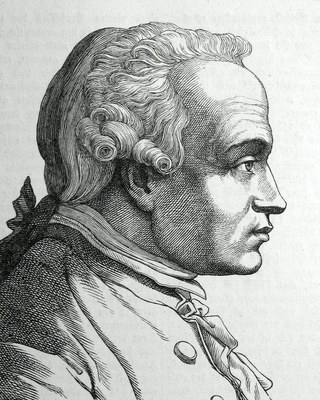Immanuel Kant (1724–1804)
erstellt von
—
last modified
2020-05-25T11:39:45+02:00
public domain
public domain
Hugo Bürkner (1818–1897), Immanuel Kant (1724–1804), etching, 1854; source: Bechstein, Ludwig: Zweihundert deutsche Männer in Bildnissen und Lebensbeschreibungen, Leipzig 1854, public domain.
Alliances and Treaties: Cooperation and Exchange in War and Peace@Alliances and Treaties@(ÜB)@freigabe
Between "Bildung" and "Wissenschaft": The 19th-Century German Ideal of Scientific Education@German Education and Science@(BE)@freigabe
Enlightenment Philosophy@Enlightenment Philosophy@(BE)@freigabe
Law@Law@(ÜB)@freigabe
State Forms and State Systems in Modern Europe@State Forms and State Systems@(BE)@freigabe
The Lisbon Earthquake (1755)@Lisbon Earthquake@(BE)@freigabe

